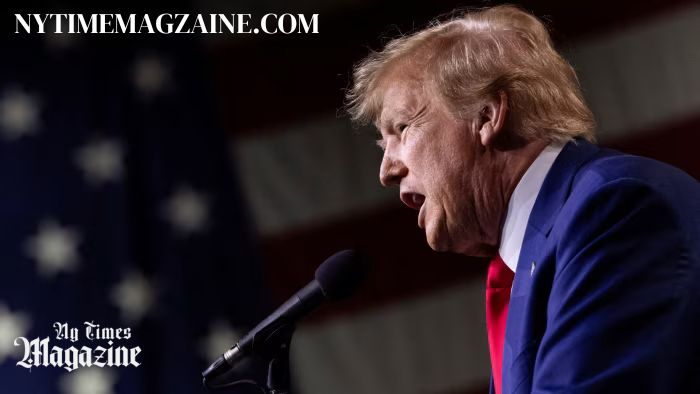Contents
- 1 Introduction:
- 2 Background on the Supreme Court’s Role:
- 3 The Legal Basis for the Decision:
- 4 Key Arguments for and Against Trump’s Candidacy:
- 5 The Timing of the Decision:
- 6 Public and Political Reactions:
- 7 Potential Ramifications for the 2024 Election:
- 8 Historical Precedents and Comparisons:
- 9 Conclusion:
- 10 The Role of Past Presidential Candidates:
- 11 Constitutional Interpretation:
- 12 Public Opinion and Pressure on the Supreme Court:
- 13 Legal Precedents and Precedence:
- 14 Political Ramifications Beyond the Election:
- 15 Possible Outcomes and Scenarios:
- 16 International Perspectives:
- 17 Conclusion:
- 18 Potential Legal Precedents for Future Cases:
- 19 Public Perception of the Judiciary:
- 20 Experts’ Opinions and Analysis:
- 21 Updates and Developments:
- 22 Political Strategy and Contingency Plans:
- 23 The Impact on Democratic Processes:
- 24 Conclusion:
Introduction:
As the 2024 presidential election approaches, a significant legal question has taken center stage: Can Donald Trump run for president? Recent headlines suggest that the Supreme Court is set to make a pivotal decision on whether Trump’s name will grace the 2024 presidential ballots. In this article, we will delve into the details surrounding this crucial matter and explore the potential implications for both Trump and the upcoming election.
Background on the Supreme Court’s Role:
To understand the gravity of this situation, it’s essential to grasp the role of the Supreme Court in determining eligibility for presidential candidacy. The highest court in the land holds the authority to interpret the Constitution and make decisions that can reshape the political landscape.
The Legal Basis for the Decision:
Explore the legal grounds upon which the Supreme Court is set to make its decision. Whether it involves constitutional clauses, past precedents, or specific legal challenges, providing readers with a comprehensive understanding of the legal framework is crucial.
Key Arguments for and Against Trump’s Candidacy:
Delve into the arguments presented by both sides of the debate. What factors are being considered when determining whether Donald Trump is eligible to run for president in 2024? This section will offer an unbiased view of the key arguments shaping the Supreme Court’s decision.
The Timing of the Decision:
Investigate why this decision is coming to the forefront at this particular moment. Analyze any events, legal actions, or political developments that have led to the Supreme Court taking up this matter with urgency.
Public and Political Reactions:
Explore how the public and political spheres are responding to the news of the Supreme Court’s involvement. Has this decision sparked widespread debate, and what are the potential consequences for Trump’s political standing?
Potential Ramifications for the 2024 Election:
Discuss the potential impact on the 2024 presidential election if the Supreme Court rules against Trump’s candidacy. How might this decision influence the political landscape and shape the dynamics of the upcoming race?
Historical Precedents and Comparisons:
Draw comparisons with historical instances where presidential candidates faced eligibility challenges. How have past cases influenced the Supreme Court’s approach to such matters, and what lessons can be learned from history?
Conclusion:
As the Supreme Court prepares to make a landmark decision on whether Donald Trump can run for president in 2024, the political landscape is set for a seismic shift. This article has aimed to provide a comprehensive overview of the background, legal considerations, and potential implications surrounding this critical issue. As the nation awaits the Supreme Court’s ruling, the decision will undoubtedly shape the trajectory of the 2024 presidential election and leave a lasting impact on the political landscape.
The Role of Past Presidential Candidates:
Take a closer look at instances where past presidential candidates faced challenges related to their eligibility. Examining how these cases were resolved and their impact on the candidates involved can provide valuable context for understanding the current situation with Donald Trump.
Constitutional Interpretation:
Explore how the Constitution is being interpreted in the context of Trump’s potential candidacy. This section can delve into specific constitutional clauses, their historical interpretations, and any evolving perspectives that may influence the Supreme Court’s decision.
Public Opinion and Pressure on the Supreme Court:
Investigate how public opinion and external pressures may be influencing the Supreme Court’s decision-making process. Has there been a notable public outcry or political pressure, and how might this affect the perceived impartiality of the judiciary?
Legal Precedents and Precedence:
Discuss any existing legal precedents that might guide the Supreme Court in reaching a decision. How have similar cases been handled in the past, and what weight do these precedents carry in shaping the outcome of Trump’s eligibility case?
Political Ramifications Beyond the Election:
Consider the broader political implications of the Supreme Court’s decision, extending beyond the immediate context of the 2024 election. How might this ruling impact the political landscape, party dynamics, and the future of presidential candidacies?
Possible Outcomes and Scenarios:
Present various scenarios that could unfold based on the Supreme Court’s decision. Discuss potential outcomes and their ramifications on Trump’s political career, the Republican Party, and the overall electoral landscape.
International Perspectives:
Explore how this legal battle and its potential outcomes are perceived on the international stage. Consider whether similar eligibility challenges have arisen in other countries and how global perspectives may shape the narrative surrounding Trump’s candidacy.
Conclusion:
In conclusion, the Supreme Court’s impending decision on whether Donald Trump can run for president in 2024 is a pivotal moment in American politics. This article has aimed to provide a thorough examination of the legal, historical, and political aspects surrounding this crucial issue. As the nation awaits the court’s ruling, the implications of this decision will extend far beyond the 2024 election, influencing the trajectory of American politics for years to come. The role of the Supreme Court in interpreting the Constitution and shaping the electoral landscape underscores the significance of this moment in the annals of U.S. political history.
Potential Legal Precedents for Future Cases:
Consider how the Supreme Court’s decision may set legal precedents for future cases involving presidential eligibility. This section can explore the broader implications on the interpretation of constitutional requirements for presidential candidates, potentially shaping the legal landscape for years to come.
Public Perception of the Judiciary:
Reflect on how the Supreme Court’s involvement in such a high-stakes decision may impact public perception of the judiciary. Address any concerns or praises expressed by the public regarding the court’s handling of this case and its potential implications for the court’s standing in American society.
Experts’ Opinions and Analysis:
Include insights from legal experts, constitutional scholars, and political analysts. Their perspectives can provide additional context, shedding light on the nuances of the case and the potential consequences of the Supreme Court’s decision.
Updates and Developments:
As the situation evolves, stay vigilant for any updates, statements, or new developments related to the Supreme Court’s decision. If there are additional legal arguments, public reactions, or political responses, incorporating the latest information will ensure the article remains current and relevant.
Political Strategy and Contingency Plans:
Examine how political parties, especially the Republican Party, are strategizing in anticipation of the Supreme Court’s decision. Are there contingency plans or alternative candidates being considered? Understanding the political maneuvering surrounding this issue adds depth to the analysis.
The Impact on Democratic Processes:
Discuss the broader impact of this case on the democratic process. How does the Supreme Court’s involvement in determining a candidate’s eligibility align with democratic principles, and what debates might arise regarding the intersection of legal decisions and the democratic will of the people?
Conclusion:
In closing, the Supreme Court’s forthcoming decision regarding Donald Trump’s eligibility to run for president in 2024 holds far-reaching consequences that extend beyond individual political ambitions. This article has aimed to provide a comprehensive exploration of the various facets surrounding this significant legal and political question. As the nation awaits the court’s verdict, the intricacies of constitutional interpretation, historical parallels, and potential future implications underscore the gravity of this moment in American political history. The Supreme Court’s role in shaping the electoral landscape emphasizes the delicate balance between legal scrutiny and democratic governance. As events continue to unfold, the eyes of the nation remain fixed on the outcome of this momentous decision.



